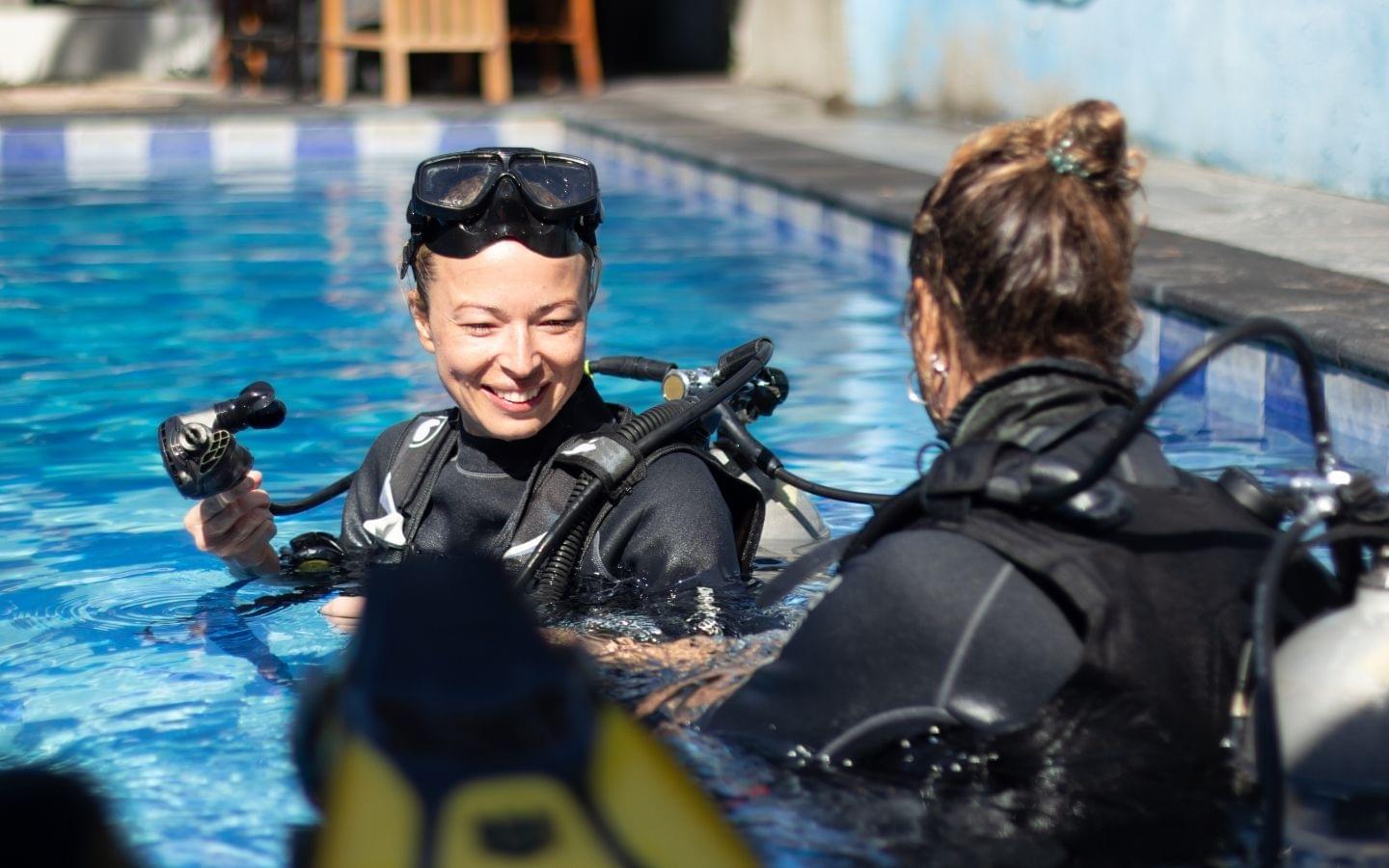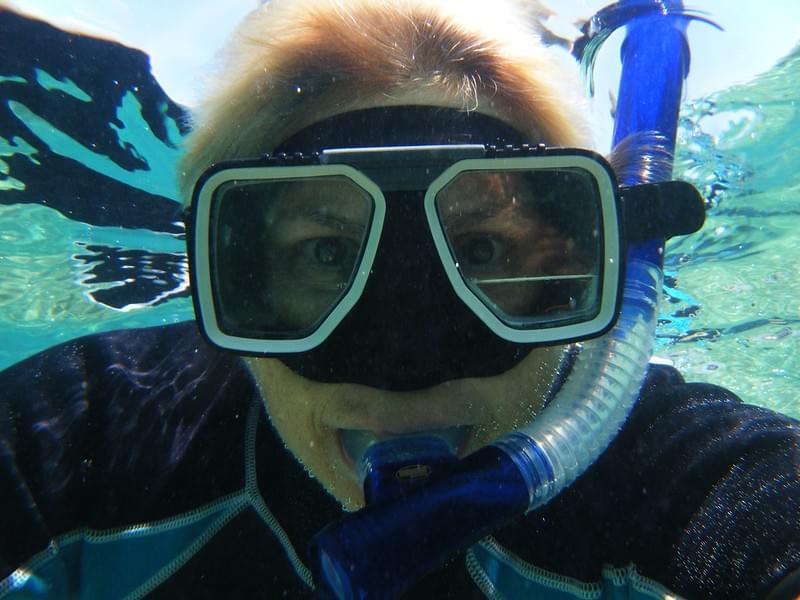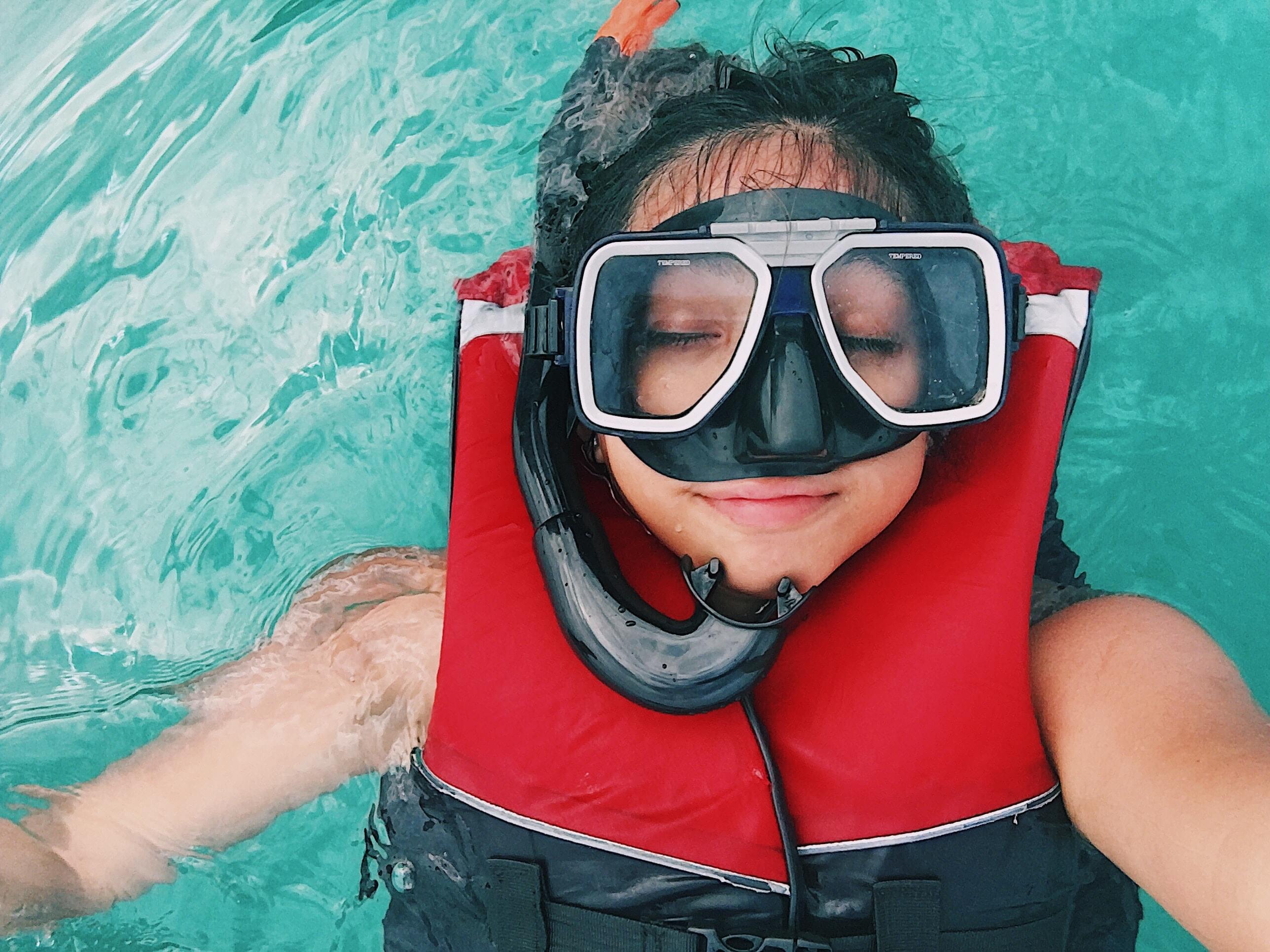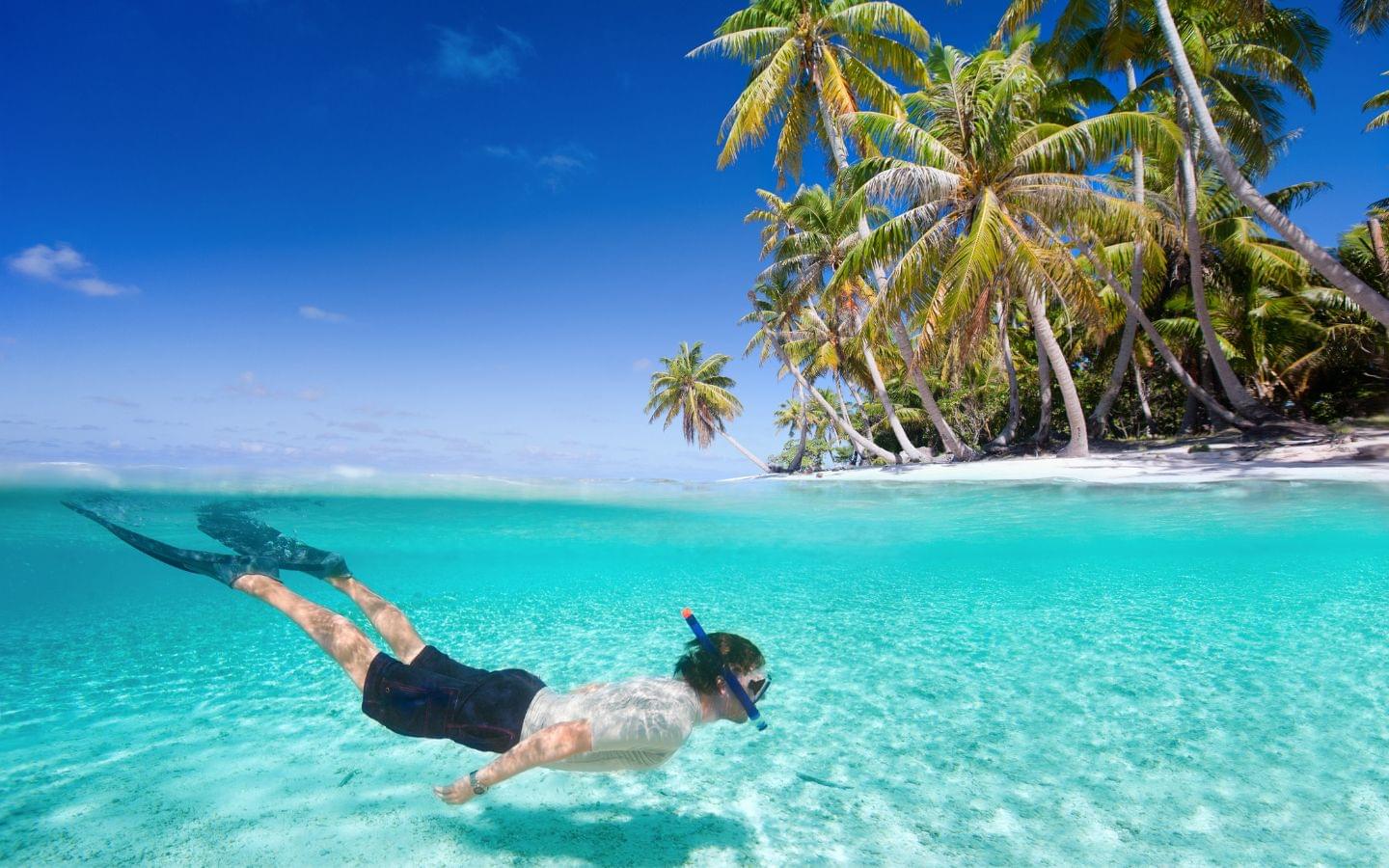Complete guide to becoming a scuba diving instructor
A step-by-step guide that teaches you everything you need to know about becoming a certified dive instructor in 2025. Learn how you can get paid to scuba dive.
Have you completed your first few dives and now you’re wondering how to turn scuba diving into a job? Below is a guide for new and experienced divers ready to transition into being a dive professional.
To become a scuba diving instructor, you’ll need to complete a series of certifications. For most agencies, that means finishing the Open Water, Advanced Open Water, Rescue Diver and Divemaster courses, plus an instructor-level program. PADI requires 60 logged dives to start its Instructor Development Course (IDC) and 100 dives to receive instructor credentials12. SSI candidates need 75 logged dives before starting the Instructor Training Course (ITC) and must be at least 18 years old with documented experience in deep, night and navigation diving3.
Below is a guide for new divers who want to progress further and experienced divers ready to transition into being a dive professional.
A step-by-step guide to becoming a dive instructor
- Pick the dive agency you want to work with – The two biggest certifying bodies are PADI and SSI. Both have similar course progressions, but their prerequisites and teaching methods differ slightly13.
- Open Water Course – Learn basic dive theory, gear assembly, buoyancy control and underwater safety. You’ll complete confined-water sessions and four open-water dives to a maximum depth of 18 meters.
- Advanced Open Water Course – Improve your buoyancy and trim while completing specialty dives. PADI requires five dives, including Deep and Underwater Navigation1, while SSI lets you pick four specialties, provided you have at least 24 logged dives.
- Rescue Diver Course – Build emergency skills by getting certified in CPR/First Aid and practicing rescues for panicked or unconscious divers. You’ll also refine navigation techniques.
- Divemaster Course – Qualify to lead certified divers. This course covers mapping dive sites, assisting instructors and conducting briefings. PADI stipulates 40 logged dives to start and requires an Emergency First Response (EFR) certificate within 24 months2.
- Instructor Development Course (IDC) / Instructor Training Course (ITC) – PADI’s IDC includes an Assistant Instructor (AI) module and the Open Water Scuba Instructor (OWSI) course. You need 60 logged dives to start and a current medical sign-off2. SSI’s ITC requires 75 logged dives and confirmed experience in deep, night and navigation diving3. Both programs teach teaching techniques, risk management and presentation skills.
- Take the Instructor Examination (IE) – After completing the IDC/ITC, you must pass a standardized instructor exam. PADI’s IE assesses written knowledge, classroom presentations and confined/open-water teaching skills2. SSI’s IE includes theoretical exams and practical evaluations in confined and open water3.
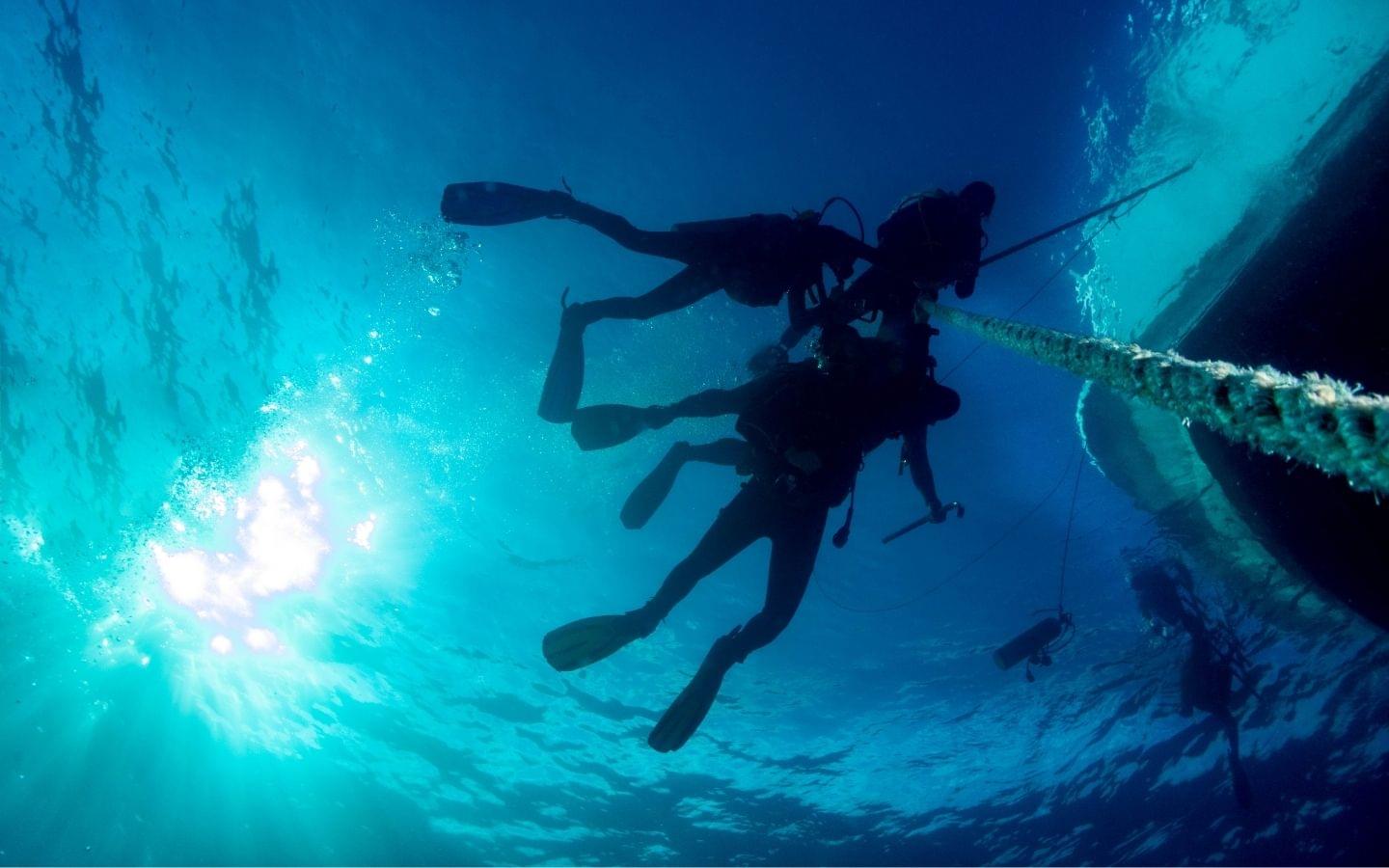
Choosing your scuba diving certification agency
Many dive agencies can certify you as a dive instructor, but the top two international agencies are PADI and SSI. All agencies follow a similar progression from beginner to instructor. To decide which is for you, check which agency is more prevalent in your region and consider the teaching style you prefer.
SSI offers a crossover course that lets a PADI instructor become SSI-certified without redoing all the coursework3. PADI doesn’t offer an equivalent crossover but provides other perks for PADI pros.
Open Water Course
Being an instructor starts with the basics in the Open Water course. You will learn about scuba gear, underwater skills and basic dive theory and safety. You’ll complete online learning or a manual, practice in confined water and finish four open-water dives. Skills include assembling your gear, buoyancy control and handling emergencies with your dive buddy.
Course Requirements:
- Complete course materials
- Confined dives to practice skills with your instructor
- Four open water dives
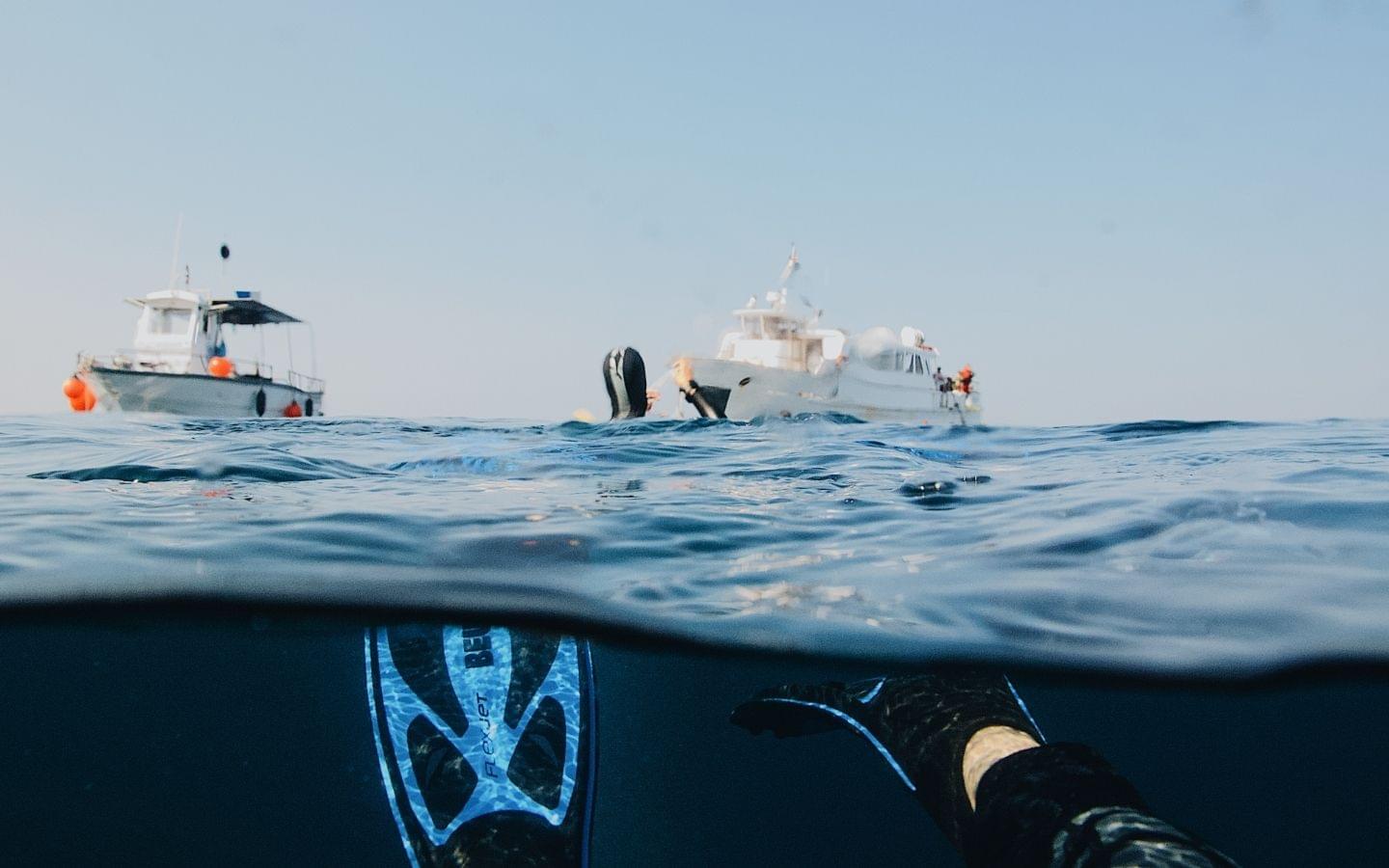
Advanced Open Water Course
The next step toward becoming a professional scuba diver is the Advanced Open Water (AOW) course. You will improve your buoyancy and trim while completing specialty dives. PADI requires five dives; Deep and Underwater Navigation are mandatory1. Deep teaches you to plan dives between 18 and 30 meters and manage nitrogen narcosis. Navigation covers compass use and natural navigation. Three additional dives can include Night, Boat, Peak Performance Buoyancy, Search and Recovery or Enriched Air. SSI requires 24 logged dives and four specialty dives of your choice.
Course Requirements:
- PADI: Deep, Underwater Navigation and three specialty dives
- SSI: 24 logged dives and four specialty dives of your choice
Rescue Diver
This course prepares you for emergencies that professional divers encounter. First you’ll get certified in CPR and First Aid, then you’ll practice saving yourself and other divers in mock emergencies. You’ll focus on identifying and assisting panicked or unconscious divers and practice lost-diver searches.
Course Requirements:
- Current CPR/First Aid certification
- Complete Rescue course materials
- Complete all necessary rescue skills in the water
Divemaster
The Divemaster course qualifies you to work professionally and lead other divers. It covers mapping dive sites, briefing customers and supervising dives. PADI requires Rescue Diver certification, EFR certification within the past 24 months and 40 logged dives to start2. You will conduct swim tests and learn to assist instructors with student divers.
Prerequisites:
- Rescue Diver certification
- Current CPR/First Aid (EFR) certification
- 40 logged dives
Course Requirements:
- Complete Divemaster course materials
- Perform required dive shop duties and skills training
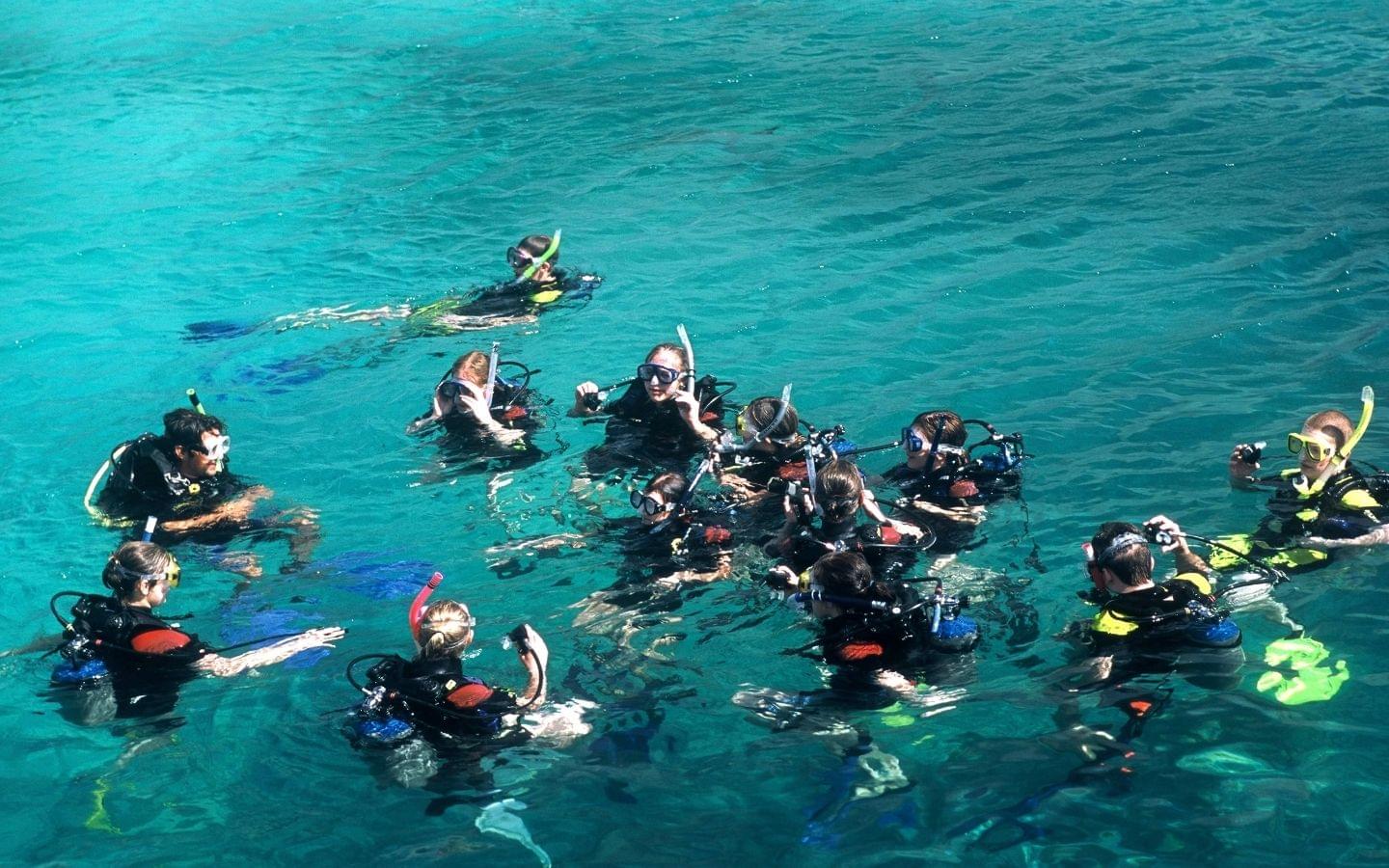
Instructor Development Course (IDC) / Instructor Training Course (ITC)
PADI’s Instructor Development Course (IDC) qualifies you to teach recreational scuba diving. It lasts roughly two weeks and includes the Assistant Instructor (AI) and Open Water Scuba Instructor (OWSI) modules. You must be at least 18, hold a Divemaster certification, have a current medical sign-off and show proof of 60 logged dives to enroll; 100 logged dives are required before the Instructor Examination2. You’ll learn to present theory, teach confined-water and open-water skills, manage risk and market yourself as a professional instructor12.
SSI’s Instructor Training Course (ITC) teaches similar skills but requires 75 logged dives before enrollment and documented experience in deep, night and navigation diving. Candidates must be at least 18, have good physical health and a recent medical exam and maintain ethical conduct3. The ITC covers classroom presentation, confined-water practice and open-water teaching; after completing it, you take the Instructor Evaluation (IE), which assesses theory knowledge and teaching skills in confined and open water3.
Prerequisites:
- PADI: Certified diver for at least 6 months, PADI Divemaster (or equivalent), 60 logged dives to start IDC, 100 logged dives to participate in the IE, CPR/First Aid certification within 24 months, medical approval within 12 months2.
- SSI: Dive Guide or Divemaster certification, at least 75 logged dives with experience in deep, night and navigation diving, minimum age 18, current medical clearance and good ethical conduct3.
Course Requirements:
- Complete AI/OWSI (IDC) or ITC modules
- Participate in classroom presentations, confined-water practices and open-water evaluations
- Pass the Instructor Examination (IE)
The price for each certification will depend on the dive shop you work with and additional factors like gear rental and travel. To learn more about the costs of scuba diving lessons, see our article here.
Divemaster versus Dive Instructor certifications
As a Divemaster you can work in the dive industry by leading certified divers and assisting instructors. However, you cannot teach complete courses. Many shops hire only instructors, so moving on to instructor training expands your job opportunities.
Some centers offer “zero-to-hero” internships that bundle all courses from Open Water to Instructor in about six months. While this route requires dedication and often volunteer work, it’s a quicker path to professional status.
Choosing where to do your IDC/ITC
Your IDC or ITC is your first job experience in the diving industry and will stand out to employers. To pick a dive shop that will prepare you well, consider the following:
Stay with the shop that trained you as a Divemaster. You’ll be comfortable with the staff, but you might miss out on new experiences.
Pick a location with similar diving conditions to where you want to work. Employers appreciate candidates who are familiar with local conditions.
Seek challenging environments. Training in strong currents or colder water builds your skill set and confidence.
How to get hired as a dive instructor
Breaking into the industry can be competitive. Dive with companies as a paying customer to network with staff. This helps you hear about job openings. If you can’t be there in person, create a professional diving résumé that highlights your certifications, logged dives and any specialties. Some employers request a headshot—keep it clear and professional. Once hired, continue honing your diving, sales and customer service skills; many dive shops pay instructors based partly on commission. Stay current with industry standards and update your training regularly.
Conclusion
Becoming a scuba instructor is an intense journey that takes commitment, skills and time. Completing all required courses and logging enough dives can take six months to a year. But once certified, you’ll have opportunities to work at dive shops around the world and share your passion for underwater exploration with students. It’s a demanding job, but the reward of introducing new divers to the ocean makes the effort worthwhile.
Resources
-
“How To Become a Scuba Instructor Step-by-Step.” PADI Blog, 1 July 2022. padi.com. ↩ ↩2 ↩3 ↩4 ↩5
-
“PADI Open Water Scuba Instructor Requirements.” Rainbow Reef IDC, rainbowreefidc.com. ↩ ↩2 ↩3 ↩4 ↩5 ↩6 ↩7 ↩8
-
“How to become a diving instructor? All the steps.” Rubicón Diving, 20 Aug 2024, rubicondiving.com. ↩ ↩2 ↩3 ↩4 ↩5 ↩6 ↩7 ↩8
Last updated 30 August 2025
Table of contents
- A step-by-step guide to becoming a dive instructor
- Choosing your scuba diving certification agency
- Open Water Course
- Advanced Open Water Course
- Rescue Diver
- Divemaster
- Instructor Development Course (IDC) / Instructor Training Course (ITC)
- Divemaster versus Dive Instructor certifications
- Choosing where to do your IDC/ITC
- How to get hired as a dive instructor
- Conclusion
